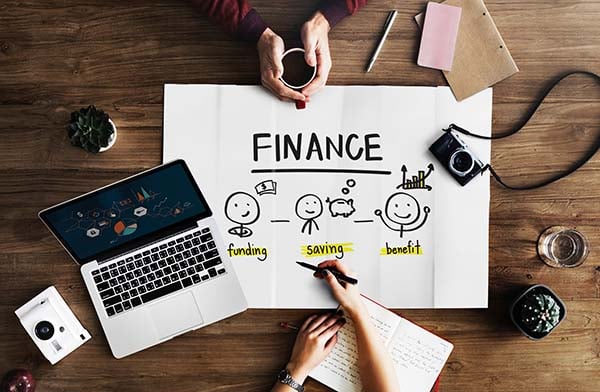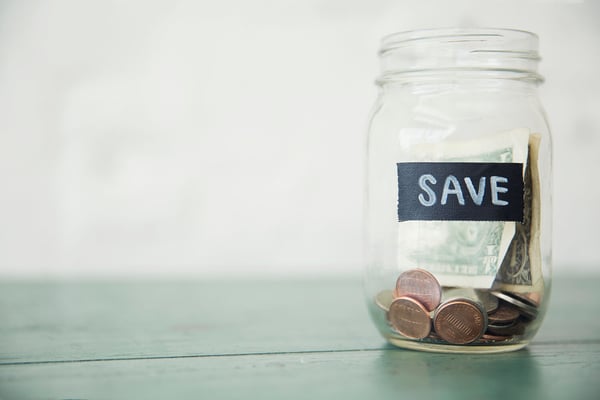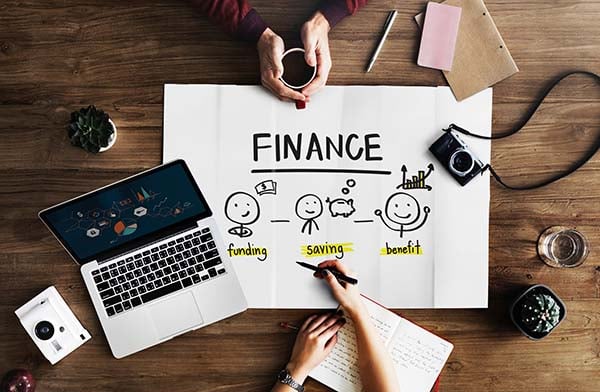By guest blogger, Teresa Arnold
It’s not easy to talk about money, especially when it’s about how much you have stored away for the future. Nevertheless, discussing uncomfortable money matters with your family or an expert is key in finding financial stability. Here, we will talk about the essential savings accounts you should have if you’re a working adult.
Retirement Savings
Retirement doesn’t look good for a huge chunk of people in America. A survey last year found that almost half of Americans will retire broke, with less than $10,000 stored away for retirement. What’s worse, 14% of survey respondents answered that they had absolutely nothing saved up for when they retire. According to USA Today, this is bad news for the aging population in the country who will need around $45,000 annually during their senior years. Fortunately, it’s never too late to save up for a nest egg, although it is admittedly a bit more difficult to catch up when you’re older.

For starters, contribute to a reliable retirement program if you can, the most common one being the employer-sponsored 401(k). Any amount you contribute to your 401(k) will make a big difference to your retirement fund, especially over time. The great thing is that you can agree upon a percentage with your employer and then it will be taken out of your paycheck even before your money hits your account. But it is important to remember that you can’t touch these savings, as any attempt to withdraw will result in a hefty penalty.
Of course, you can’t put all your eggs in one basket — it’s always a good idea to diversify. Invest in long-term and low-risk stocks, usually in the form of real estate or even gold. Keep in mind that it’s not advisable to do this on your own unless you have a finance degree, and even then, it’s still smarter to consult a professional. For something as serious as retirement savings, schedule an appointment with a finance expert that can help personalize your plan.
Thankfully, Huffpost reports that sessions with financial advisers are more affordable than ever, with fees as low as $400. It’s no surprise then that so many people are starting to turn to these experts for their financial planning.
Finance experts from Maryville University reveal that the demand for financial planners will grow by 30% from 2014 to 2024. A typical session with a financial planner will cover almost everything you need to know about retirement savings and asset management, so you don’t usually have to book more than once.
Emergency Fund
You’ve likely heard of this type of savings before and at first, it may sound self-explanatory. However, a study from the University of Chicago found that more than half of Americans don't have enough savings to cover expenses in case their paycheck doesn't come. The answer isn't as simple as keeping money under your bed either, as there are a few things to take into account to maximize your emergency fund’s benefits and avoid major losses.
For instance, The Balance’s brief guide to building an emergency fund warns against overfunding this savings account, as too much money in this fund will ultimately hurt you. First, consider how this fund will be sitting in your account with minimal to no returns. This will definitely lead to inflation eventually outpacing it, resulting in losses. The second way an overfunded emergency account is detrimental has to do with your other savings accounts. That is, the excess money stagnant in your emergency fund could have been used in your retirement or personal savings. You’d be missing out on your other financial goals trying to make a large emergency fund that only accumulates losses throughout the years.

So how much should you actually have in your emergency fund? The usual answer is three to six months of your expenses. However, the real amount depends on your personal needs. You have to consider anticipated emergency expenses if you have kids who are prone to sickness, a house that needs maintenance, or an old car that might need repairs. The point is to have a pool of money you can take from comfortably in case of unexpected and necessary expenses. Once you’ve determined how much you should have in your emergency fund, save at least 10% of your monthly income to build it. Don’t worry, you only have to set aside this money until you meet your calculated amount. Then, adjust it biannually or yearly as your expenses increase or decrease.
Personal Savings
Personal savings are a necessity for most of your big purchases. Since you can’t touch your retirement or emergency funds, this is where you should get your cash for those plane tickets, new gadgets, or home renovation projects. Having personal savings will help lessen your risk of incurring too much credit debt and is your first line of defense before touching your emergency fund.
As with the other types of savings on this list, the amount you should have in your personal savings depends on your lifestyle and needs. You can calculate this by adding up your monthly contribution to your retirement and emergency fund, and then subtracting these from your income. From what remains, make a commitment to set aside a reasonable amount that still allows you to have enough to meet your daily expenses.
All in all, it’s possible to have a financially secure future if you start taking your financial planning seriously today. With a solid plan and a bit of discipline, you’ll be on the right track to long-term financial stability.
 Teresa Arnold is a freelance financial planner who is dedicated to making life easier for her clients. She extends this to hundreds of strangers around the world through her writing, as she is passionate about boosting global financial literacy. When she's not working on a new article, you'll find her jogging in the park with her German Shepherd, Willie.
Teresa Arnold is a freelance financial planner who is dedicated to making life easier for her clients. She extends this to hundreds of strangers around the world through her writing, as she is passionate about boosting global financial literacy. When she's not working on a new article, you'll find her jogging in the park with her German Shepherd, Willie.





